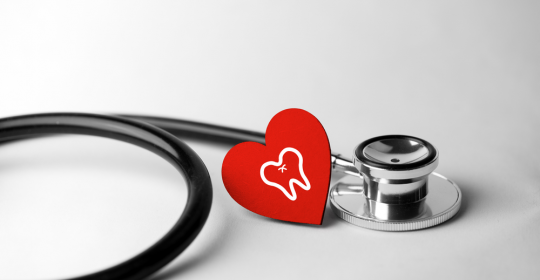
What Your Teeth Are Telling You About Your Overall Health
When we’re young, we get nagged quite a lot when it comes to dental hygiene. And it’s not because parents, teachers, TV ads or dentists enjoy reminding us to brush our teeth. It turns out that lack of proper dental care has far-reaching consequences and can affect your overall health in surprising ways. It goes the other way around as well: there are some health issues that cause oral problems.
Let’s see what the state of your teeth is telling you about your overall health and vice versa!
How your overall health is affected by dental problems
The mouth contains many different types of bacteria – some good, some bad. In order to keep the amount of bad bacteria in check, we brush, floss, use mouthwash and go to the dentist regularly.
When we don’t take proper care of our teeth, the bacteria multiplies and can cause infections, tooth loss and, sometimes, spread to other parts of the body, causing serious health issues.
Heart problems
There is a direct correlation between bad oral health and heart problems, which has been proven by several studies so far. Infections in your mouth can lead to bacteria getting into the bloodstream and reaching the heart. When the bacteria sticks to the heart’s walls, it can cause clogged arteries, heart disease and even a stroke.
Dementia
A bacteria associated with gum disease (Porphyromonas gingivalis) has been found in the brains of people suffering from dementia. The bacteria enters the bloodstream when brushing, flossing or chewing and ends up in the brain, generating an immune response. This response leads to the release of chemicals that can kill neurons and contribute to deteriorating memory and confusion.
Pregnancy Issues
Recent studies have indicated that women with gum disease may be at risk of giving birth to a preterm or low-birth weight baby. Many women suffer from pregnancy gingivitis, which manifests as gum tenderness or swelling and excessive bleeding when flossing, brushing or eating. If you are pregnant and have these symptoms, it’s best to see your dentist and discuss treatment – it doesn’t only help with your overall health, but also ensures a safe pregnancy and a healthy baby.
How different health issues affect your teeth
It’s not just oral health that affects overall health, but the other way around as well. Different diseases can impact your teeth and lead to decay or tooth loss.
Diabetes
People with diabetes often have dental problems like gum disease, dry mouth, thrush or mouth ulcers. This is because the body’s response to harmful bacteria is reduced and also because high levels of blood sugar lead to bacteria growth.
Patients with diabetes need to be very strict about their oral hygiene routine, ideally brushing and flossing twice per day in order to reduce the harmful bacteria that leads to dental issues.
Osteoporosis
Osteoporosis manifests as a weakening of bones, making them brittle. Some recent studies have found a link between osteoporosis and tooth loss or weakening of the jaw bone. The medications for this disease can also damage your teeth.
Vitamin deficiency
Vitamins A, D and C play an important role in your dental health. Vitamin A & D deficiencies affect epithelial cells and impede the secretion of calcium, fluoride and magnesium, which help form enamel (the surface of the teeth). The result? Weakened enamel that can lead to cavity formation and tooth sensitivity.
A vitamin C deficiency can result in dentine damage, because the cells that build dentine are directly affected by the body’s vitamin C levels.
When looking at oral health, a holistic approach is best. Oral symptoms might be a sign of something else going on in the body and vice versa. As prevention is the best treatment, make sure you visit your friendly dentists in Collingwood Park for regular check ups and cleaning!
Leave a reply →
Most Commented